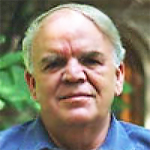The Society of Experimental Psychologists (SEP) has awarded its 2013 Norman Anderson Lifetime Achievement Award to Larry L. Jacoby, PhD, an internationally recognized scholar of human memory and a professor of psychology in Arts & Sciences at Washington University in St. Louis.

Citing “ his imaginative investigations of unconscious influences on memory, the nature of memory attributions and the effects of cognitive aging on memory,” the society presented Jacoby with the award at its annual banquet March 30 at Brown University in Providence, R.I.
Founded in 1904, the society is an honorary elected group of about 200 psychologists. The Norman Anderson Lifetime Achievement Award is given to senior individuals with outstanding records of sustained contribution to experimental psychology.
“Dr. Jacoby is hugely deserving of receiving this honor,” said SEP secretary-treasurer Robert Nosofsky. “For decades, he has made extraordinarily creative, insightful and significant contributions to the study of memory and to the distinction between consciously controlled and automatic cognitive processes.
“Among his numerous major contributions involves his insight that individual cognitive tasks do not provide pure measures of single processes. Through ingenious experimental and modeling techniques, Jacoby has enormously advanced our ability to measure the joint roles of consciously controlled and automatic processes in varieties of task performance. The applications of his ideas are extremely far reaching, allowing researchers to better understand age-related differences in memory, fundamental issues in the domain of social psychology, and a variety of intriguing memory illusions.”
Jacoby earned his doctoral degree in psychology from Southern Illinois University Carbondale in 1970 and took his first faculty job at Iowa State University. In 1975, he moved to McMaster University in Canada, where he would remain for much of the next 25 years. He joined Washington University as a professor of psychology in Arts & Sciences in 2000.
In a career spanning four decades, he has made numerous influential contributions to both cognitive and social psychology, especially in the areas of human memory and cognitive aging.
In the 1970s, Jacoby worked on topics of transfer of information from short-term to long-term memory and on the levels of processing approach to memory. Both these topics were at the cutting edge of research in the 1970s, and he made significant contributions to them. In the 1980s, he turned his attention to an emerging field that came to be called implicit or indirect measures of memory.
One of the main starting points of this revolution in the study of memory came from a 1981 paper that Jacoby co-published in the Journal of Experimental Psychology: General, which showed, for the first time, that variables that have huge effects on standard explicit measures of memory such as recognition have either no effect or an opposite effect on implicit measures of memory – in this case, a word identification test.
Jacoby and colleagues published many other impressive investigations on this topic, including pioneering studies of “memory attributions” that examined the influences of implicit forms of memory and how they could occasionally intrude into conscious decisions, and vice versa. For example, his work on the false fame effect or “becoming famous overnight” showed that when people are exposed repeatedly to a nonfamous name, such as Sebastian Weisdorf, and then time passes so that they no longer explicitly recollect having seen the name, they would later judge the name as being famous.
In 1991, Jacoby made one of his most important contributions when he published a paper on the ingenious process dissociation procedure, which permits separate estimates of the contributions of controlled and automatic processes in a variety of tasks, and has had a huge influence on research in several fields of psychology. The paper has been cited more than 2,500 times.
Around this time, Jacoby also initiated his studies of cognitive aging, which during the past two decades have used a number of novel techniques he developed to illuminate the interplay between conscious and nonconscious memory processes in older adults, including demonstrating that older adults are particularly susceptible to false fame effects as well as other memory errors and illusions.
At Washington University, Jacoby directs the Aging, Memory and Cognitive Control Lab in the Department of Psychology. Research in the lab focuses on questions related to cognitive control and to subjective experience, especially the distinction between consciously controlled and automatic processes. Other research investigates age-related differences in memory and perception, memory illusions and cognitive factors influencing learning and education.